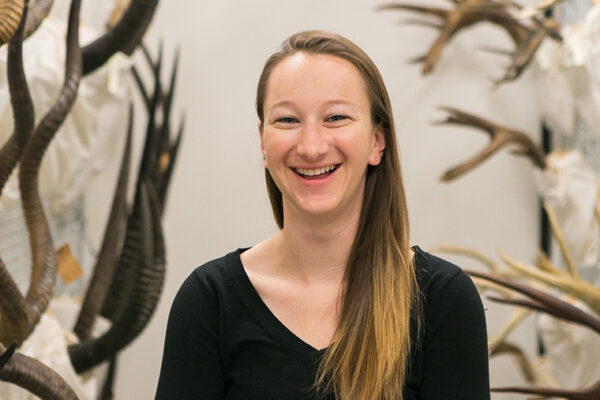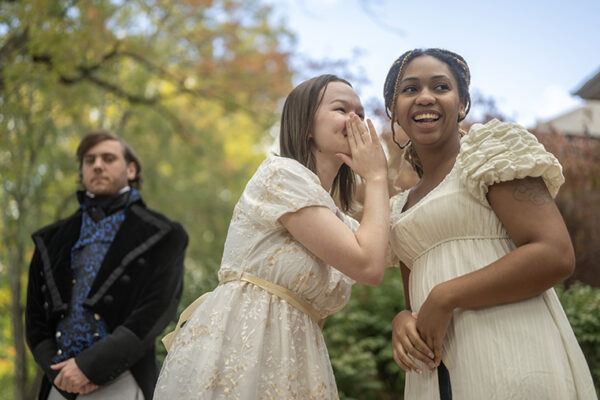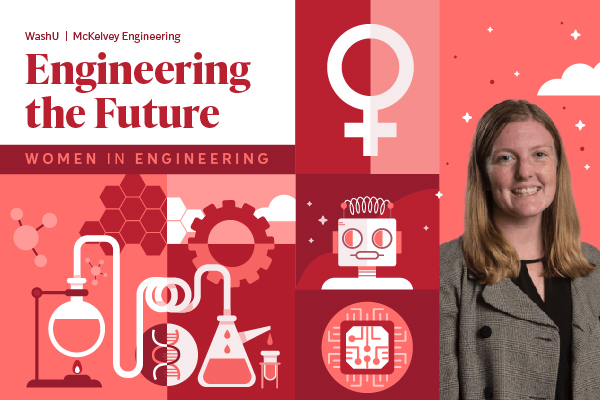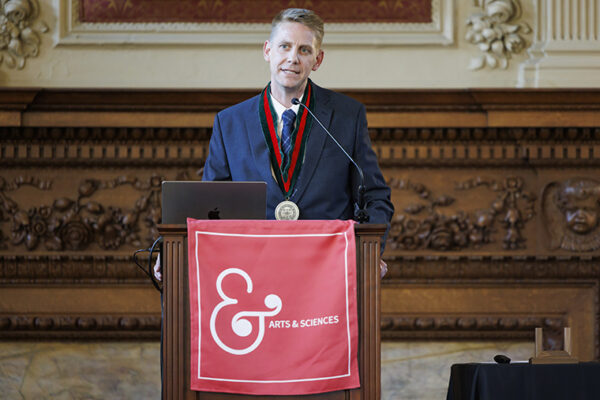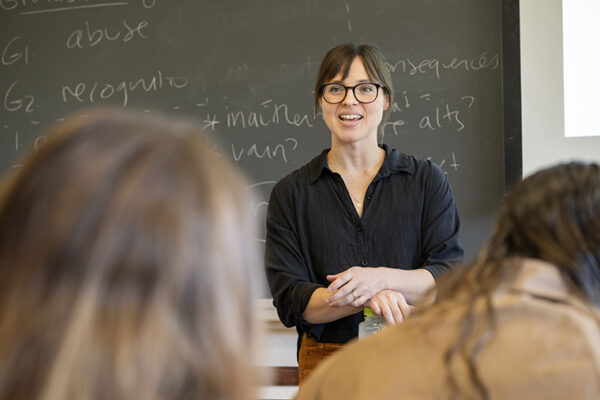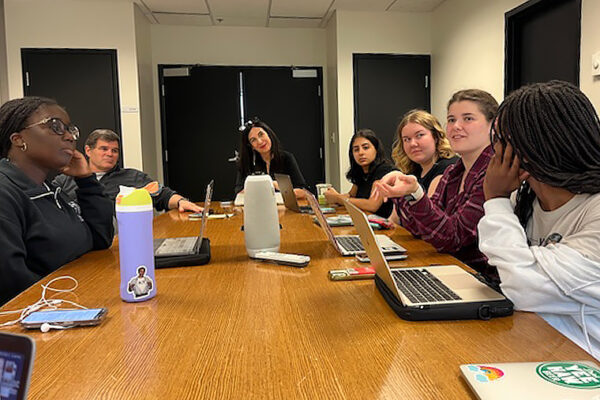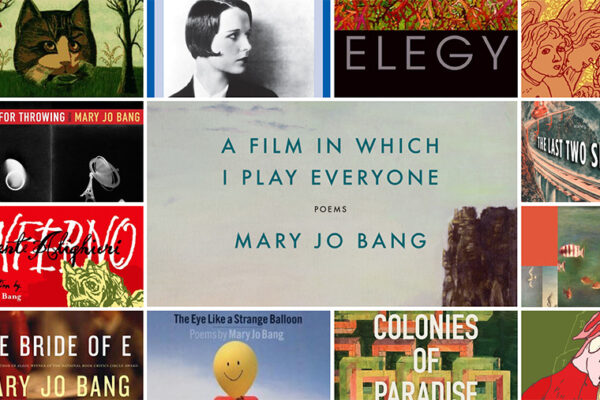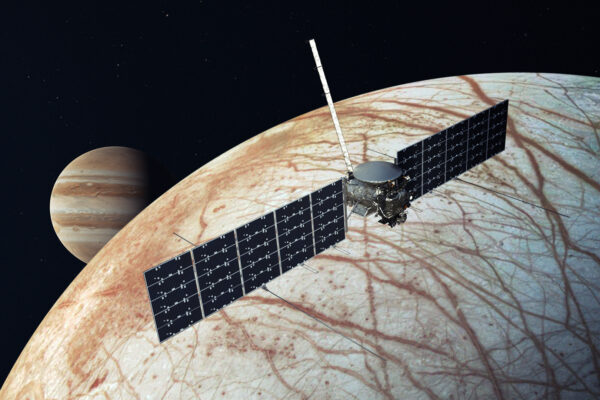Carlen wins Association for Women in Science award
Biologist Elizabeth Carlen, a postdoctoral fellow with the Living Earth Collaborative at WashU, received a 2024 Spark Award from the Association for Women in Science. The Spark Award highlights students or early-career leaders in STEM who are visible and vocal advocates for diversity and inclusive scientific practices.
Ball gowns and running shoes
The Bennet daughters are stubborn, idealistic, spirited and sometimes nosy. They are also unmarried. In the early 19th-century world of “Pride and Prejudice,” which opens Oct. 25 in Edison Theatre, this presents a problem. None can inherit the family estate.
How to depolarize social media
At a time when political polarization is becoming an increasing problem on social media, WashU data scientist Jean Springsteen is working on a way to bring down the temperature and still get buy-in from social media companies.
Van Engen installed as Stanley Elkin Professor in the Humanities
Abram Van Engen, chair of the Department of English in Arts & Sciences, was recently installed as the Stanley Elkin Professor in the Humanities.
WashU researchers use genetics to find psychopathology risks
Researchers at Washington University are identifying behavioral, environmental and neural factors through which genetic risk for mental health problems is expressed in youth.
Can we get better at disagreeing?
How do we reason? When do we apply value judgments? Over the last year, WashU’s Civil Society Initiative has sponsored a range of classes, guest speakers and public events exploring the nature of responsible democratic citizenship.
Arts & Sciences kicks off Public Health & Society program
WashU officially will launch the Program in Public Health & Society — including a major and minor — at a celebratory event Monday, Oct. 21. The program, in Arts & Sciences, offers a distinctive interdisciplinary approach to public health.
Bang wins University City literary award
Mary Jo Bang, a professor of English in Arts & Sciences, will receive the 2024 Tradition of Literary Excellence Award from the University City Municipal Commission on Arts & Letters.
NASA’s Europa Clipper spacecraft launches
Europa Clipper will conduct a detailed survey of Jupiter’s moon Europa to determine whether there are places below the moon’s surface that could support life. WashU’s William B. McKinnon, a member of the Europa Clipper science team, has studied Europa for more than 40 years.
Food for thought
Arts & Sciences’ undergraduate Spanish course “Not a Piece of Cake,” provides a taste of Latin American literature and history.
View More Stories
